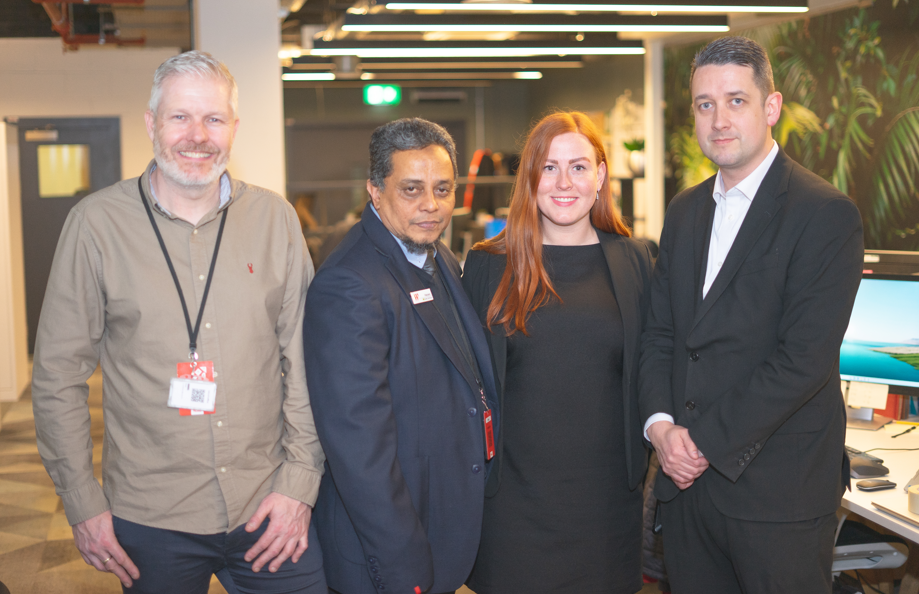

In the modern and rapidly evolving work environment, the question isn't just about how to manage people effectively - it's about how to create an environment where they thrive. In an era where talent is our most valuable asset, companies are unlocking innovation, engagement and loyalty by reimagining how they treat their people - not as resources to be managed, but as individuals to be empowered.
Recent statistics reveal that traditional HR is still not meeting employee experience needs. The Gallup State of the Global Workplace Report 2023 shows that "only31% of U.S. and Canadian employees are engaged." This lack of engagement highlights a critical gap in creating a sense of purpose and belonging within the workplace. Additionally, Mind’s Workplace Wellbeing Index 2022-2023 reports that 55.7%of UK employees have reported experiencing mental health issue to their employers. The expectations of the modern workforce, particularly Millennials and Gen Z, increasingly value meaningful work, flexibility and a positive workplace culture. All of this points to the ongoing challenge, and opportunity, of creating a supportive and open environment in the workplace.
How does ‘HR’ make your employees feel?
It can be argued that modern Human Resources practices have become overly bureaucratic, often losing touch with the true needs of both employees and businesses. The word "Resources" suggests commodities or tools - things to be used and managed and therefore not a term that inspires or reflects the value we place on our individuals. The people who make up our businesses are so much more than just "resources"—they are real individuals, each with their own unique experiences, ambitions and contributions to business success. It’s no longer enough to simply manage people; it’s time to step back and see things from their perspective.
HR is no longer just the department responsible for hiring, administration, and staff training; it is the full end-to-end experience of our employees, throughout their entire employment journey. As HR continues to evolve, I believe it’s time to reimagine its terminology and consider an approach to better emphasise nurturing human potential and the unique value and individuality of each employee. This approach is what we call Employee Experience (EX).
If you are considering making the move from a HR to an EX focus, here are some steps you can take to get started:
1. Consider every stage of your employees' employment journey
In pursuit of operational excellence, there may be a risk of overlooking what really counts: the human experience. Evaluate and enhance every stage of the employee journey, from recruitment to exit, to ensure a seamless and positive experience. Create a detailed employee experience map that highlights key touchpoints where engagement can be improved and identify opportunities to enrich each phase.
2. Focus on the wellbeing and engagement of your employees
Redesign the onboarding process to achieve early engagement, conducting regular check-ins and pulse surveys to monitor well-being and embedding personal well-being discussions in performance reviews. Offering continuous learning opportunities, supporting flexible work arrangements, and creating a culture of recognition will also enhance engagement.
3. Realign roles, responsibilities& metrics within your HR team
Realign the roles and responsibilities within your HR team to reflect the new EX philosophy. Updating job titles and responsibilities is important to emphasise the employee journey. Move away from traditional HR metrics and start focussing on ones that measure the quality of the employee experience.
4. Equip managers to lead with EX in mind
Equip managers with the right skills and knowledge to lead with EX in mind. Provide training and development that focusses on emotional intelligence, communication and the importance of cultivating positive team dynamics.
5. Continuous employee feedback
Make continuous employee feedback a cornerstone of your EX strategy and ensure that EX initiatives promote diversity, equity and inclusion.
By placing your employees at the forefront of your organisation, you can create a culture where they feel appreciated, engaged and empowered to contribute their best every day. This shift can be a strategic transition that resonates with the needs of today’s dynamic workplace. Emphasising colleague-focused strategies can help drive sustainable success, spark innovation, and build a thriving work environment where everyone can excel.
Ethos Farm, Forbes Business Council Thought Leader
